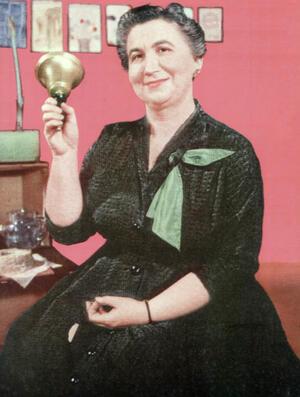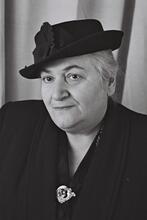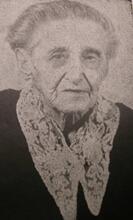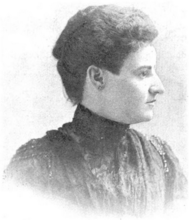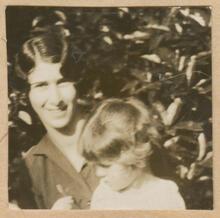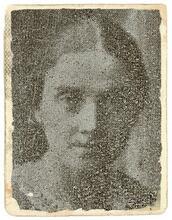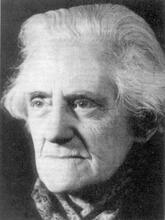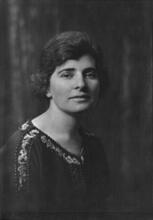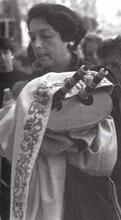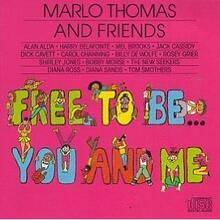Frances Horwich
Frances Horwich was loved by parents and children alike for her television show, Ding Dong School. She served in a variety of posts, from supervising nursery schools for the Works Progress Administration to dean of education at Pestalozzi Froebel Teacher’s College of Chicago to professor of education at the University of North Carolina. On her show, Ding Dong School, Horwich showed millions of children how to finger paint, grow plants, and do craft projects with household objects like pipe cleaners and paper plates. The show earned Horwich both a Peabody and Woman of the Year in Education Award in 1953, as well as the National Association for Better Radio and Television Award. Horwich also wrote 27 Ding Dong School books and two books for parents.
“I’m your school bell—ding, dong, ding! Boys and girls all hear me ring.” So began the daily telecasts of Ding Dong School, the popular children’s television show of the mid–1950s. “Miss Frances,” the school’s beloved teacher, rang her handbell at the start of each show and invited her audience of millions to join her for the day’s activities.
Early Life and Career
Frances Rappaport Horwich was born on July 16, 1908 in Ottawa, Ohio, and was the daughter of Samuel (b. c. 1868) and Rosa (Gratz, b. c. 1869) Rappaport. Samuel immigrated to the United States in 1884 from Austria and Rosa in 1885 from Russia. They had five children: Henry (b. c. 1895), Mary B. (b. c. 1898), Maggie F. (b. c. 1903), Joseph N. (b. c. 1905), and Frances (b. 1908). After completing high school in her hometown, Horwich earned her bachelor’s degree in 1929 from the University of Chicago. She received her M.A. from Teachers’ College at Columbia University in 1933 and her doctorate in education from Northwestern University in 1942.
Prior to her involvement with Ding Dong School from 1952 to 1956, Horwich served in a variety of positions in the field of education. After marrying attorney Harvey Horwich (1898–1974) on June 11, 1931, she was supervisor of nursery schools for the Works Progress Administration (1933–1935); director of junior kindergartens in Winnetka, Illinois (1935–1938); dean of education at Pestalozzi Froebel Teachers’ College of Chicago (1938–1940); counselor to student teachers at Chicago Teachers’ College (1940–1942); director of Hessian Hills School in Croton-on-Hudson, New York (1942–1944), and visiting professor of education at the University of North Carolina (1945–1946). When she was tapped by NBC to create the first educational television program geared for preschool children, Horwich was a professor of education at Roosevelt College in Chicago.
Television Career and Ding Dong School
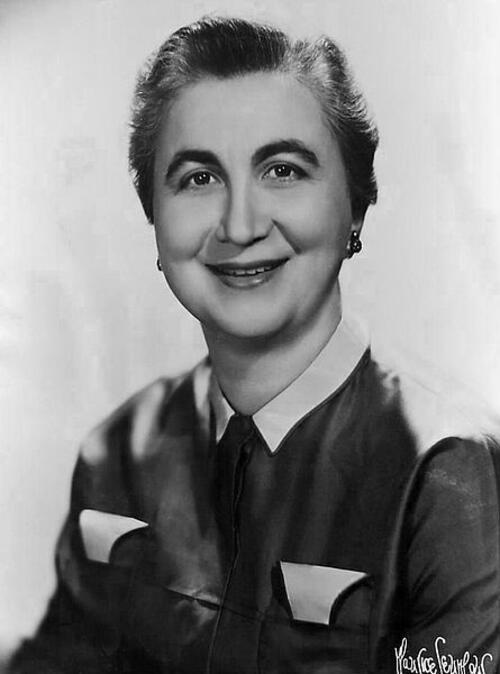
Educator, administrator, professor, and writer, Frances Horwich (1908–2001).
Image courtesy of NBC via Wikimedia Commons.
Ding Dong School aired for the first time on October 3, 1952, on a Chicago-based NBC affiliate station. At the end of the show’s first week on the air, the station received letters of praise from some five thousand parents in the local area. Five weeks later, NBC decided to broadcast the show nationwide. As many as three to four million fans tuned in to live broadcasts of Ding Dong School each weekday morning for an hour. From 1955–1956 Horwich also served as supervisor of children’s television programming for NBC. In December 1956 NBC canceled the show, but a Chicago station continued to air it locally from 1957 to 1959. Ding Dong School ran in syndication between 1959 and 1967. In the 1960s Horwich also occasionally made an appearance as “Miss Frances” on local television.
Horwich led her program in a familiar style, conducting a conversation with the students in her classroom. For the most part, the single camera stayed focused on “Miss Frances” or whatever arts and crafts activity she demonstrated. The only additional guests joining Miss Frances from time to time were a rabbit puppet, a monkey puppet, one or two dolls and three goldfish.
The show’s “curriculum” featured lessons in finger painting, horticulture, mathematics, puzzle making, and pipe cleaner usage, interspersed with pearls of wisdom on good behavior and citizenship. Five minutes before the end of each broadcast, Miss Frances asked her viewers to “go get Mom.” In this segment, she would summarize the day’s accomplishments and list the supplies required to complete the next day’s project. The materials were always inexpensive and easy to find. Among the items to be collected might be pipe cleaners, a shoebox, string, a brown paper bag or paper plates. Horwich’s Jewish identity appears to have influenced the content of the program very little.
Writing and Legacy
Horwich authored a number of books for children and parents. Among others, she published a series of twenty-seven Ding Dong School books with Rand McNally between 1953 and 1956. She wrote two books for parents: Have Fun With Your Children (1954) and The Magic of Bringing Up Your Child (1959). Horwich contributed to a number of other educational publications throughout the course of her career.
Following the cessation of Ding Dong School, Horwich served as an educational consultant to the Curtis Publishing Company (1962–1964), Field Enterprises Corporation (1965–1966) and the Chicago Head Start preschool program (1968–1970).
Horwich was the recipient of some sixty awards and honors for her work on Ding Dong School, most notably the George Foster Peabody Award in 1953. In the same year the Associated Press named her Woman of the Year in Education. She earned the National Association for Better Radio and Television Award in 1953 and 1954. In 2001, the Chicago Chapter of the National Academy of Television Arts and Sciences presented her with a Silver Circle Award for her contributions to television broadcasting.
Horwich was affiliated with a number of professional organizations throughout her career. In the 1940s and 1950s she occupied leadership positions in the Association of Nursery Education, the American Education Fellowship, the National Association for the Education of Young Children and the Chicago Chapter of the National Academy of Television Arts and Sciences. She was also a member of the National Education Association and took part in a host of other organizations in the fields of education, mental health, and television and radio.
Horwich died on July 22, 2001, in Scottsdale, Arizona. She and her husband had no children.
Chicago Midwest Chapter of the National Academy of Television Arts and Sciences. “Past Silver Circle Awards.” May 19, 2004. .
Coville, Gary W. “Ding Dong School Days.” Antiques and Collecting Magazine (July 1995): 45–48.
“Horwich, Frances R(appaport).” In Contemporary Authors: Permanent Series, edited by Clare Kinsman. 2 vols. Detroit: 1964.
“Horwich, Frances (Rappaport).” Current Biography: Who’s News and Why, edited by Marjorie Dent Candee. New York: 1953.
“Horwich, Frances Rappaport.” Webster’s Dictionary of American Women Revised. New York: 1996.
Kloss, Lester K., Jr. “Children of the ’50s Had Real Friends on TV.” Featured letter, Chicago Sun-Times, February 1, 2004: 34. Wakin, Daniel J. “Frances R. Horwich, 93, Host of ‘Ding Dong School’ in ’50s.” New York Times, July 26, 2001, obituary.

